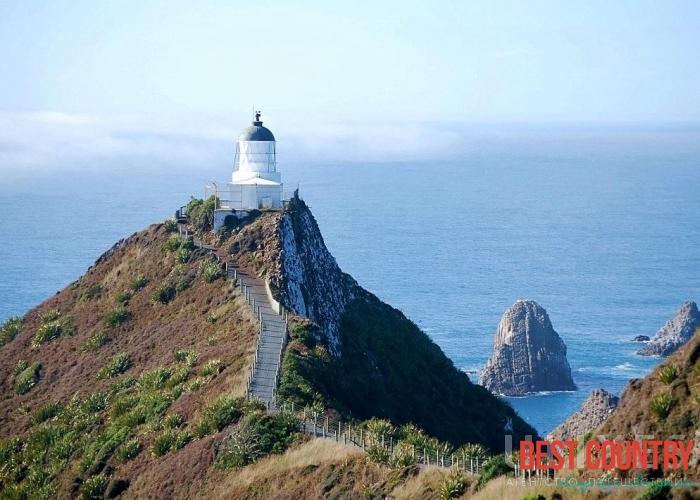Religion in New Zealand

Notably, the country has become much more secular in recent times, with roughly 40% of New Zealanders—whether atheist, agnostic or simply apatheist— claiming no religion at all. Currently just over half of New Zealanders identify with a religion, based on the results of the 2006 New Zealand Census of Population and Dwellings.
Religions
Christianity
After the arrival of large numbers of European immigrants (most of whom were British) Māori enthusiastically adopted Christianity in the early 19th century, and to this day, Christian prayer (karakia) is the expected way to begin and end Māori public gatherings of many kinds.
Christianity became the major religion of the country, with the Anglican, Catholic and Presbyterian churches all establishing themselves strongly. The arrival of other groups of immigrants did little to change this, as Pacific Islanders and other primarily Christian ethnic groups dominated immigration until the 1970s.
In the following decades, Christianity declined somewhat in percentage terms, mostly due to people declaring themselves as having no religion as well as by the growth of non-Christian religions. The five largest Christian denominations in 2001 remained the largest in 2006.
The Catholic and Methodist denominations increased, while Anglican denomination, the Presbyterian, Congregation and Reformed denomination, and undefined Christian denominations decreased.
While smaller groups, there were larger percentage increases in affiliations with other Christian denominations between 2001 and 2006: Orthodox Christian religions increased by 37.8 percent, affiliation with Evangelical, Born Again and Fundamentalist religions increased by 25.6 percent, and affiliation with Pentecostal religions increased by 17.8 percent.
Other religions
2005/2006 data from census and Association of Religion Data Archives(ARDA) shows that 7%-9% of the New Zealand population is religiously non-Christian.
The Census does not break down percentages of these smaller affiliations however it does report that often about 80% of the largest groups are immigrants, and almost half arriving since 2000 except the native Maori (a comparative few of which still practice their traditional religion) and the Bahá'í Faith (which is only 20% of all minorities.)
ARDA reports the percentages of non-Christian religions as follows:
Buddhist - 2.18%.
Hindu - 2.03%. About 65,000 in 2006.[6] The 1st New Zealand Hindu Youth Conference was organized on 2 May 2009. More than 130 delegates participated in the conference. Several parliamentarians including Pansy Wong, Minister for Ethnic Affairs and the Minister of Women’s Affairs addressed the delegates.
Ethnoreligionist - 0.9%. Traditional Māori religion, that is, the pre-European belief system of the Māori, was little modified in its essentials from that of their tropical Eastern Polynesian homeland, conceiving of everything, including natural elements and all living things as connected by common descent through whakapapa or genealogy. Accordingly, all things were thought of as possessing a life force or "mauri".
Muslim - 0.8%. Islam in New Zealand began with the arrival of Muslim Chinese gold prospectors in the 1870s. The first Islamic organisation in New Zealand, the New Zealand Muslim Association, was established in Auckland in 1950.1960 saw the arrival of the first imam, Maulana Said Musa Patel, from Gujarat, India.
Large-scale Muslim immigration began in the 1970s with the arrival of Fiji Indians, followed in the 1990s by refugees from various war-torn countries. In April 1979 the three regional Muslim organisations of Canterbury, Wellington and Auckland, to create the only national Islamic body – the Federation of Islamic Associations of New Zealand.
Early in the 1990s many migrants were admitted under New Zealand's refugee quota, from war zones in Somalia, Bosnia, Afghanistan, Kosovo and Iraq.[citation needed] Since the September 11 attacks there was a spike in conversions to Islam among Maori prisoners in jail.
Chinese Universalist - 0.3%. Chinese Universalist is a category developed by World Christian Database and most are in China, Taiwan, Malaysia, Indonesia or Singapore and other South East Asian countries and Canada.
Baha'i - 0.2%. The first Bahá'í in the Antipodes was Englander Dorothea Spinney who had just arrived from New York in Auckland in 1912.
Sikh - 0.2%. The Sikhs have grown 83.0% between 2001 and 2006. There are thirteen gurdwaras (the Sikh place of worship) in New Zealand.
Jewish - 0.1%. The history of the Jews here begins in the 1830s including noted early settler Joel Samuel Polack and continued to grow from immigration.
Among the prominent New Zealand Jews include nineteenth century Premier Julius Vogel and at least five Auckland mayors, including Dove-Myer Robinson. The current Prime Minister, John Key of the National Party is of part Ashkenazi Jewish descent, although he does not practice Judaism.
Currently, the Jewish population is estimated at around 7,000 out of the total New Zealand population of 4.2 million. The majority of New Zealand Jews reside in Auckland and Wellington, though there is also a significant Jewish community in Dunedin which is believed to have the world's southernmost permanent synagogue.
Neo-religions - 0.1%.